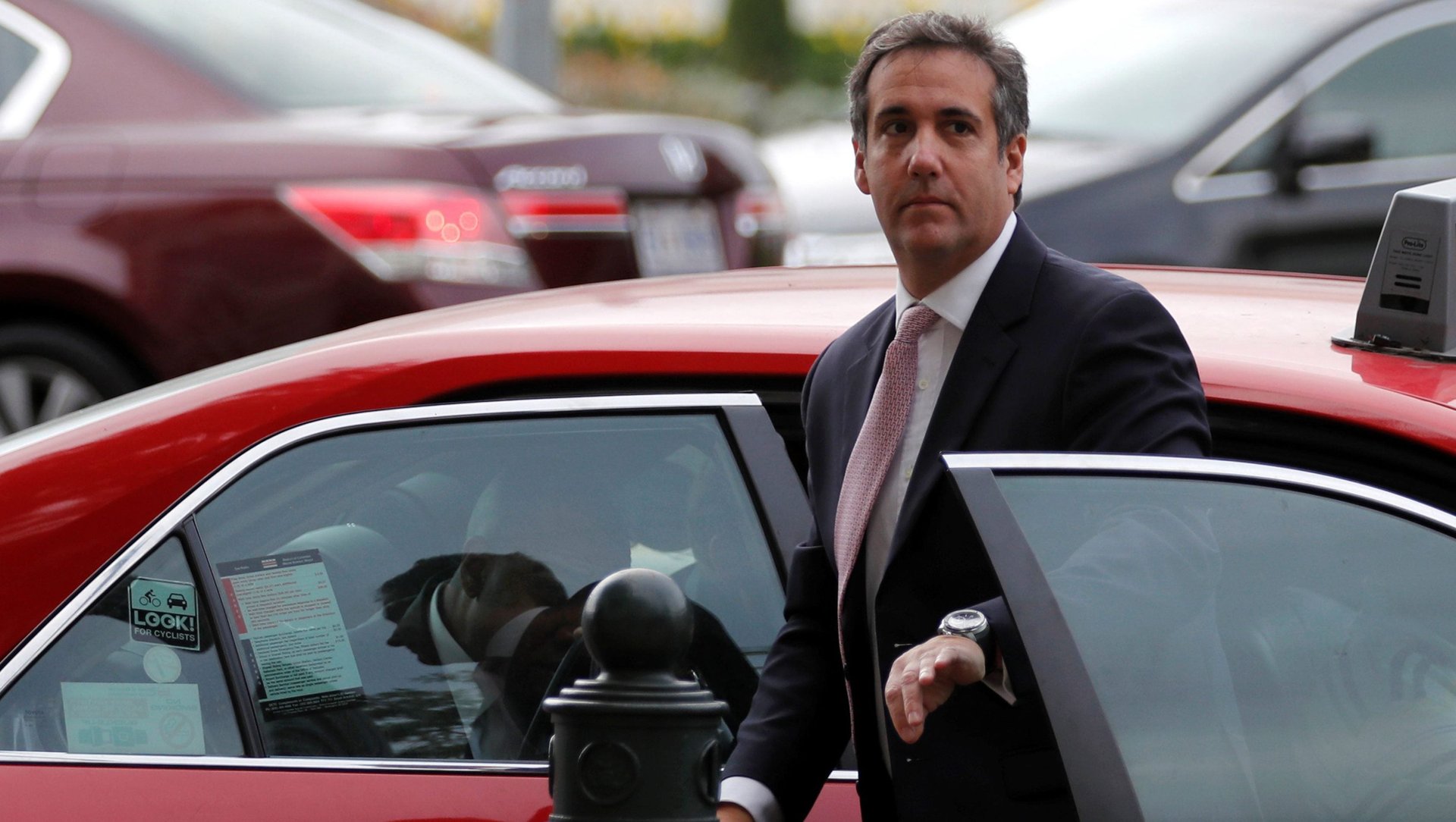If AT&T had paid off Michael Cohen in a foreign country, it would be in deep 💩
AT&T has ousted the executive who decided to pay president Trump’s personal attorney $600,000 for work as a “political consultant” and CEO Randall Stephenson called it “a big mistake”—but the telecoms giant insists the payment was legal.


AT&T has ousted the executive who decided to pay president Trump’s personal attorney $600,000 for work as a “political consultant” and CEO Randall Stephenson called it “a big mistake”—but the telecoms giant insists the payment was legal.
However, if the firm made the same payment to someone like Cohen in a foreign country, it would raise a big red flag for violating the US Foreign Corrupt Practices Act (FCPA), legal experts say.
“If I had a client that said it was preparing to pay a sum of money to a close personal friend of a foreign official to help gain them access to that foreign official, I would tell them that they couldn’t do it,” says Clif Burns, an international corruption expert at law firm Bryan Cave. He notes that he was commenting about the FCPA generally, without reference to any specific company.
Burns said this kind of payment risks running afoul of the FCPA, a vaunted US law that bans American firms from paying direct or indirect bribes to foreign officials.
There’s no evidence or allegation that Cohen has shared any of the money paid by AT&T, Novartis (which paid Cohen $1.2 million), or Columbus Nova (which paid around $500,000) with Trump. But Cohen’s previous payment to Stormy Daniels on Trump’s behalf—with or without Trump’s knowledge and which may or may not have been reimbursed— certainly muddies the waters.
“If this money was paid to Cohen with the expectation that some or all of it would benefit a government official, then—yes—definitely. It’s a fairly typical third-party bribery scheme in that case,” Alexandra Wrage, president of anti-corruption NGO TRACE International, wrote in an email.
The big question is whether Trump received any benefit, directly or indirectly, from Cohen.
“If Michael Cohen were translated to a foreign situation, let’s say I pay Michael Cohen $500,000, and he says, ‘I can get you access to Trump—that’s all I’m gonna do, just give me $500,000.’ You’d reasonably be in a situation where, while performing those services, there would be a good likelihood he’s sharing that money with a government official,” Burns says.
Money does not necessarily need to change hands. Burns cites the “Chinese princelings” case, where JP Morgan was fined $264 million for hiring the children of Chinese officials, in an attempt to curry their favor and secure future business.
“No cash was actually given but the notion was that hiring your kid was an advantage,” Burns says.
The services provided by Cohen have variously been described as “insight,” “access,” and “legal counseling regarding U.S. accounting standards,” but in each case it was his proximity to Trump that was the draw.
Ironically, US bribery laws are much less strict when it comes to cases within the United States. Corporations and lobbyists routinely pay large fees to people who are close to powerful officials, and it is usually legal—or at least not prosecuted.
But special counsel Robert Mueller did refer Cohen’s case to the US attorney for the Southern District of New York on possible bank fraud and wire fraud charges. AT&T and Novartis say they were questioned by Mueller’s office in November.
Trump, incidentally, is no fan of the FCPA. In 2012, he called it a “horrible law” that stifles American businesses trying to work abroad.